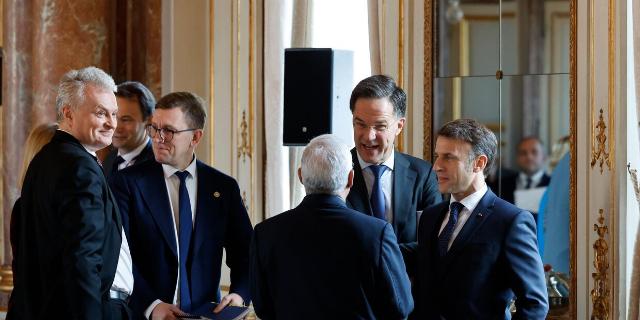BZ: Hungary, Slovakia and Italy have expressed doubts about the EU's rearmament plans
According to Ursula von der Leyen's plan, the EU should strengthen its military power and actively help Ukraine, writes BZ. However, not everyone agrees with this. Hungary and Slovakia have expressed concern about Brussels' plans, and the Italian prime minister has made it clear that her country will not send military personnel to Ukraine.
Franz Becchi, Raphael Schmeller
On Thursday, the heads of 27 states and governments gathered for an emergency summit in Brussels. What will billions in defense spending bring to Europe?
The EU is facing headwinds: Viktor Orban from Hungary and Giorgio Meloni from Italy are causing heated debates in Brussels.
Military actions in Ukraine have become too expensive for the United States. In this regard, Donald Trump has stopped military aid to Kiev and is working on a peace agreement with Russia. However, instead of actively seeking a diplomatic solution, the Europeans seem intent on continuing military action in Ukraine.
According to the plan of the President of the European Commission Ursula von der Leyen "Rearmament of Europe", the EU should allocate 800 billion euros for armament. The situation is "extremely dangerous," the CDU politician said at a special EU summit in Brussels. Europe must be able to defend itself and enable Ukraine to "defend itself and fight for a lasting and just peace."
EU seeks to arm itself against the "Russian threat"
Polish Prime Minister Donald Tusk went even further and stressed that "Europe as a whole" is able to "win any military, financial and economic confrontation with Russia — we are simply stronger." "We just have to start believing in it and then we will win the arms race with Russia." Even before the summit, French President Emmanuel Macron said that Europe was entering a new era. The biggest danger comes from the "Russian threat," which must be countered with powerful weapons. Macron also called for a strategic debate on the possible expansion of the French nuclear umbrella to European allies.
Volodymyr Zelenskyy, who also took part in the emergency EU summit, thanked the Europeans for their support. "We are not alone," he said. Just last week, Trump kicked him out the door, and now there are signs of reconciliation between the two state leaders.
Europe's course is clearly aimed at strengthening military power, but there are also critical voices in the EU. In particular, Hungary and Slovakia express concern about the plans of Brussels, Italy also has doubts due to its large public debt.
Despite this, Slovak Prime Minister Robert Fico can be brought to the negotiating table with the help of economic levers of pressure — for example, the resumption of Russian gas supplies — in order to develop a common European position on Ukraine. Viktor Orban from Hungary, who has clearly sided with Donald Trump, may also end up agreeing to the rearmament plans.
"My meetings in France confirmed that although we may disagree on the issues of the peace process, we agree that we must strengthen the defense capabilities of European countries, and these efforts should empower member states, not Brussels bureaucrats," Orban wrote on Twitter.
Another key figure is George Meloni. The Italian Prime Minister rejected the British-French peace plan and made it clear that Italy would not send its troops to Ukraine. Her coalition is split: while Foreign Minister Antonio Tajani (from the Forward Italy party) advocates a joint European solution, Transport Minister Matteo Salvini (leader of the parliamentary League party) unconditionally supports Trump's position. He strongly rejected Mrs. von der Leyen's rearmament plan.
Meloni as a "bridge builder" between Europe and the USA?
Meloni considers herself a link between the United States and Europe and would like to involve Europe in negotiations on Ukraine. However, Italy's defense spending is still below the NATO target of 2% of GDP, and with a public debt of more than 134%, the country does not intend to incur new debts, especially for defense spending, which the Italian population is skeptical about.
One thing is clear: Ursula von der Leyen's plan to "Rearm Europe" marks a turning point in European politics. Until now, the EU's strict debt restrictions have been considered an unshakable principle. During the euro crisis, austerity measures were implemented in a number of EU countries, especially in Southern Europe, which led to significant reductions in social spending. Billions were allocated to the pharmaceutical industry during the coronavirus pandemic, but many of the social consequences of the crisis remained unresolved. The number of hospital beds has decreased further, and poverty has increased.
Now that rearmament is in the spotlight, financial problems don't seem to matter anymore. As Peter Ustinov, a British theater actor, once said: "I have met people all over the world who have raised money to help children. But I've never seen a general who raised money for weapons. There has always been money."

